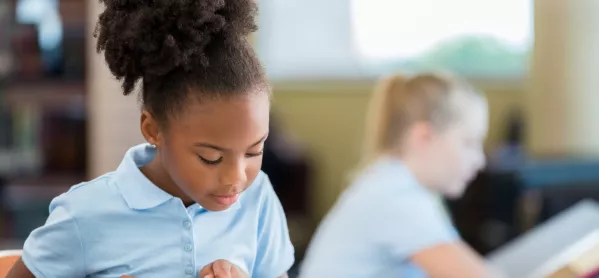Encouraging young children to engage with pictures, texts and questions during story time can boost early language development by up to seven months, new research shows.
These types of interactive reading approaches are “high impact” ways of improving learning outcomes for two- to five-year-olds, the Education Endowment Foundation (EEF) says.
The research is included in the updated Early Years Toolkit, which is based on research in early years settings in primary schools and nursery schools.
The toolkit has been designed to support early years professionals “improve learning outcomes for their children, particularly those from socio-economically disadvantaged backgrounds”.
The update summarises findings from international evidence that shows involvement with communication and language approaches can boost pupil progress by up to seven months over the course of a year, according to EEF.
Interactive reading approaches could prompt young pupils to think about what happens next, or to relate stories to their own experience.
And while all children “appear to benefit from such approaches”, the EEF suggests that some studies “show slightly larger effects for children from disadvantaged backgrounds”.
The EEF concedes that “less is known about the long-term impact of communication and language approaches, so additional evidence about whether, and how to ensure that, benefits are maintained once children start school would be valuable”.
While the evidence strength is “moderate”, the EEF says that the majority of studies used in the evidence were from the United States and “some care may be needed in adopting approaches from different contexts”.
EEF research previously found that there were, on average, three more children per class not reaching the expected levels of development by the end of Reception in 2021 compared with pre-pandemic levels.
EYFS: ways to improve early literacy
The toolkit also details early literacy approaches that could prompt pupils to make up to four months’ progress.
These approaches include storytelling and group reading; activities developing letter knowledge, knowledge of sounds and early phonics; and introductions to different kinds of writing.
Professor Becky Francis, chief executive of the EEF, said that giving every child access to learning and development opportunities ”is absolutely crucial to making sure they achieve their potential”.
She added that early years professionals “play a central role in this mission” but “they shoulder a huge amount of responsibility in their day-to-day working lives”.
“Through our renewed focus on the early years - and the new resources we’ve launched today - we hope that the EEF can play a role in providing meaningful and timely guidance to all those working at this crucial stage of our education system,” she said.
In June government data revealed that the number of three- to four-year-olds receiving early years pupil premium (EYPP) was the highest on record.
Last year the EEF said that the number of very low-attaining pupils in Year 2 reading had more than tripled compared with pre-pandemic levels.




